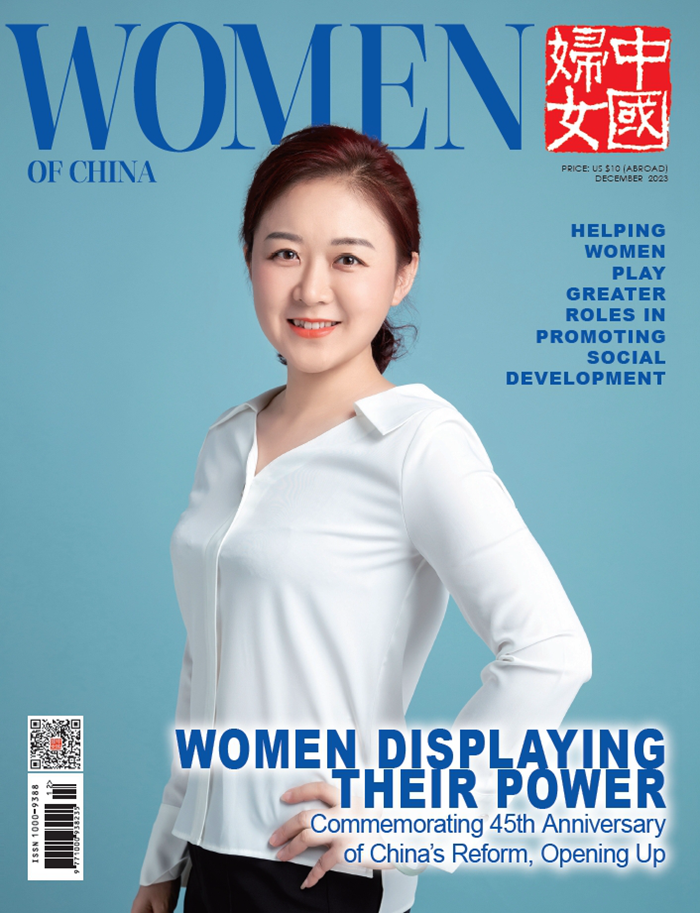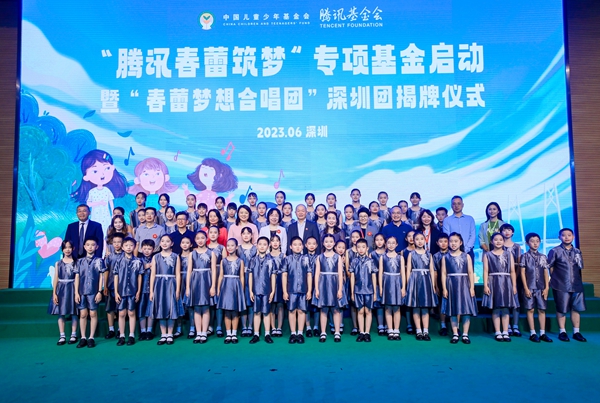Amputee in Wuhan Discovers Purpose
After struggling with her disability, Li Juan starts a protheses company to give others like her a chance to live better lives
When Li Juan returns home from a business trip, she is usually exhausted but happy that her products were well received by the disabled people she met.
She was in high spirits as she discussed the joy she derives from serving others with her company, Wuhan Agme Rehabilitation Equipment Co, which develops prosthetic limbs in Wuhan, Hubei Province.
"For me, it is a happy thing to be able to help more and more disabled people," said Li, who is also disabled and uses a prosthetic leg.
"I walk a little slower and with more difficulty than others, but as long as I persist, I can succeed," she said.
The 45-year-old — nicknamed "Pin Jie", or hardworking sister, by her employees — has traveled to more than half of China over the course of 200 trips to introduce and sell her products.
The prosthetic limbs her company produces have been serving more disabled at home and abroad, Li said happily.
When she was 15 years old, she was involved in a traffic accident in E'zhou, Hubei, her hometown. Her injuries led to the amputation of her left leg at the hip.
"Besides lying in bed all day, I did not know how to survive at that time, and I even had thoughts of suicide," she said.
Back then, she refused to be fitted with a prosthesis. In the early 1990s, prosthetic technology was limited, and the discomfort it caused led her to decline the device.
It was the unexpected death of Li's mother that prompted her to pull herself together after lying in bed for a year and take on a maternal role for her younger brother and sister.
"I had to stand up and walk out of the gloom of sadness," she said.
Later, when a vocational school specializing in orthopedic prosthesis technology in Wuhan contacted Li and offered to assemble a prosthetic leg for her, she quickly accepted.
New Leg, New Mission
To learn how to use a prosthesis as part of the body, Li needed to undergo intensive rehabilitation training. Her clothes were often soaked with sweat by the end of each session.
During the process, she inevitably stumbled from time to time, but extra precautions were taken to help her avoid falling.
After about a month of rehab, Li said she burst into tears when she was finally able to stand and walk on her own with her prosthesis.
As her device was being assembled, she learned there were a large number of disabled people in China who need prostheses, but the nation's assembly capabilities still lagged behind those of more developed countries.
It was then that she formed a plan to help others like her.
A few years later, Li met and fell in love with her husband, who had previously worked in the prosthetic assembly field. Their ideas coincided: successful prosthetic assembly would play a huge role in helping disabled people integrate with society.
In 2003, she established Wuhan Agme and focused on providing prosthetic assembly services and rehabilitation training.
Li created the company's motto, "Rehabilitation starts from the heart", advocating communication with sincerity with physically disabled patients to help them overcome their difficulties.
She recalled that at the time, the prosthesis industry in China relied on imported products, and most domestic enterprises could only earn assembly service fees. "We had to master core technology and produce our own products," she said. "Only by excelling in technology can people with disabilities learn to walk more steadily."
In 2006, Wuhan Agme embarked on a path of independent research and development. The company's efforts led to some notable achievements.
Li said once the wear resistance of a small component such as a needle roller bearing begins to erode in a knee joint, it causes the joint to jam.
To find a suitable bearing, Li and her team conducted experiments on products from different brands both domestically and internationally before they found the most suitable one.
Disabled people with high amputations have extremely strict requirements for their prosthetic knee joints. They are the largest and most complex joints in the human body, and the prosthetic version is the most technologically advanced component.
In a pneumatic knee joint, for example, there are more than 150 internal parts.
Making Improvements
In 2006, Li decided to develop a pneumatic knee joint starting from scratch. She and her R&D team analyzed products on the market and created samples. After repeated testing, a prototype of the main structure was basically completed in 2009.
Li tested each prosthetic improvement on herself first and discussed her experiences with the technicians.
The R&D team repeatedly tested the more than 150 components of the joint one by one, going through thousands of trials.
Eventually, the weight of the knee joint was reduced from 1.5 kilograms to 1 kg, and the knee flexion angle was adjusted from 150 degrees to 125 degrees. This is close to the natural human knee joint flexion angle, making it comfortable for prosthesis users to sit and squat.
Similar imported joints were priced at over 80,000 yuan for assembly in the 1990s, but thanks to the successful research and development conducted by Wuhan Agme, the product now costs about 30,000 yuan ($4,194) on the domestic market. Foreign products have been forced to lower their knee joint prices to around 60,000 yuan.
Passion Fuels Success
Xiao Han, a technician at Wuhan Agme, said Li has a great passion for helping others.
He recalled that after she learned about an amputation patient's financial difficulties, she assembled a free prosthesis for him, covered his rehab training fees for a month and waived his food and accommodation expenses at the company's training center.
Li's company has provided free prostheses for more than 100 disabled people, he said.
Zhan Yonggang, deputy general manager of the company, said Li's zeal for her work has inspired him.
"She doesn't treat herself as a disabled person," he said. "She lives a more spirited life than people without disabilities."
Guo Ting, another company employee, said Li is a great person who is strong, outgoing and down-to-earth.
According to Li, Wuhan Agme has now served nearly 40,000 amputees and has provided clinical services to more than 200,000 bone injury patients.
Her products have been sold in countries such as Malaysia, Mexico and India, and the order volume is steadily increasing.
"Some people have now been using our products for over 10 years," Li said.
Some foreign manufacturers provide a three-year warranty, but Li set the warranty period for her prostheses to five years — evidence that the repair rate of her products is lower than the market average. Li said she hopes to produce the best prosthetic products domestically and even globally, enabling more disabled people to stand and walk well.
Both her husband and son have supported her efforts to expand her career and realize her dreams. Li's husband, who is 10 years her senior, has retired, and their son is in his second year at the Hubei University of Chinese Medicine.
(Source: China Daily)
Please understand that womenofchina.cn,a non-profit, information-communication website, cannot reach every writer before using articles and images. For copyright issues, please contact us by emailing: website@womenofchina.cn. The articles published and opinions expressed on this website represent the opinions of writers and are not necessarily shared by womenofchina.cn.








 WeChat
WeChat Weibo
Weibo 京公网安备 11010102004314号
京公网安备 11010102004314号